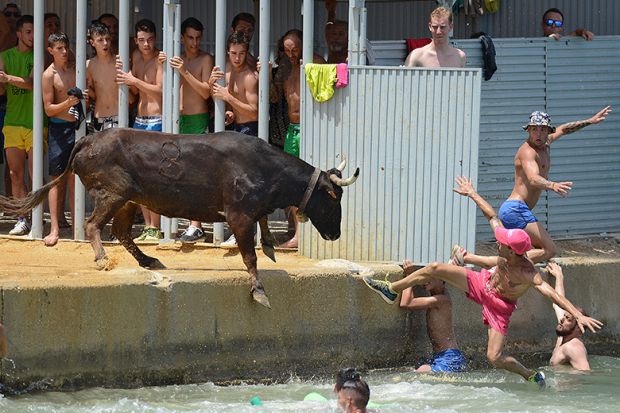Recipients of a Spanish grant programme designed to attract international talent have described feeling “deceived” after their funding ended, claiming they were wrongly led to believe they would go on to secure long-term positions in Spain.
Announced in 2021, the María Zambrano programme was one of several introduced with the stated goal of “improving the quality of the Spanish university system”. Funded by the European Union’s post-Covid recovery package, the government issued grants of €4,000 (£3,350) a month to support stays at Spanish universities of between one and three years.
To qualify for the grants, ultimately awarded to more than 1,000 researchers, applicants were required to demonstrate a postdoctoral career of more than two years. Many recipients were Spanish academics conducting research overseas, who saw the programme as an opportunity to return to their home country.
Scholars said that they were under the impression that funding would be available to extend the programme or to support the creation of permanent posts for scheme participants. But in many cases this has not materialised, and now the scheme has come to an end.
Often, María Zambrano researchers did not receive the full €4,000 grant as anticipated, with many universities using some of the funds to pay social security contributions – a practice several courts subsequently ruled to be “unjustified”.
“Many of us feel deceived by this programme,” said Sergio Pedraza-Arévalo, a postdoctoral researcher in biomedicine who moved from King’s College London to the University of Cordoba under the scheme. “We don’t understand the point of attracting international talent only to have them leave again two years later. It has been a failed programme.”
“Attraction normally implies retention,” said biologist Mario Ruiz-González, a former senior scientist at Ecuador’s Technical University of Loja who relocated to the Technical University of Valencia. “Thus, I was expecting to have support in finding a permanent position.”
The future, Ruiz-González said, felt uncertain. “I am 50 years old, and although I have a highly competitive CV, I find out that I am too senior for postdoc contracts and too old to apply for a lecturer position in many countries.”
The chemist Marta Martínez Alonso, employed at the University of Burgos under the scheme, shared a similar concern. “Now I have a small contract of 10 months, as my supervisor had some money to hire me,” she said. “I don’t know what will happen after these 10 months. I’m 36 and I haven’t any stability, which is not compatible if I want to be a mother.”
Santiago Oviedo Casado, a theoretical physicist who was a senior doctoral researcher at the Hebrew University of Jerusalem before taking up a María Zambrano position at the Polytechnic University of Cartagena (UPCT), said he felt misled by the programme, noting that the university had told him there was a “likely chance” he would be a tenured or tenure track researcher by its end.
“My partner and I decided to buy a house in Cartagena, as we were both happy to be here, had a job, and would like to settle,” he said. “When it became clear that there was no chance to continue at UPCT, things became hard.”
Tatiana Alvarado Teodorika, a philologist and literary theorist who worked at the Complutense University of Madrid under the scheme, said more should have been done to enable María Zambrano academics to remain in the Spanish university system. “I think that the programme shouldn’t have been called a talent attraction programme since universities were not interested in retaining researchers,” she said. “I definitely think government and universities should have done more to ensure retention of so many researchers.”
Cultural studies scholar Miguel Rivas Venegas, who held a María Zambrano position at the University of the Basque Country, called the programme a “missed opportunity”. Leading academics from around the world, “many of whom are now either gone or struggling with residency issues”, could have formed “the foundation for a new, dynamic scientific community in Spain”, Rivas Venegas said.
Register to continue
Why register?
- Registration is free and only takes a moment
- Once registered, you can read 3 articles a month
- Sign up for our newsletter
Subscribe
Or subscribe for unlimited access to:
- Unlimited access to news, views, insights & reviews
- Digital editions
- Digital access to THE’s university and college rankings analysis
Already registered or a current subscriber?








